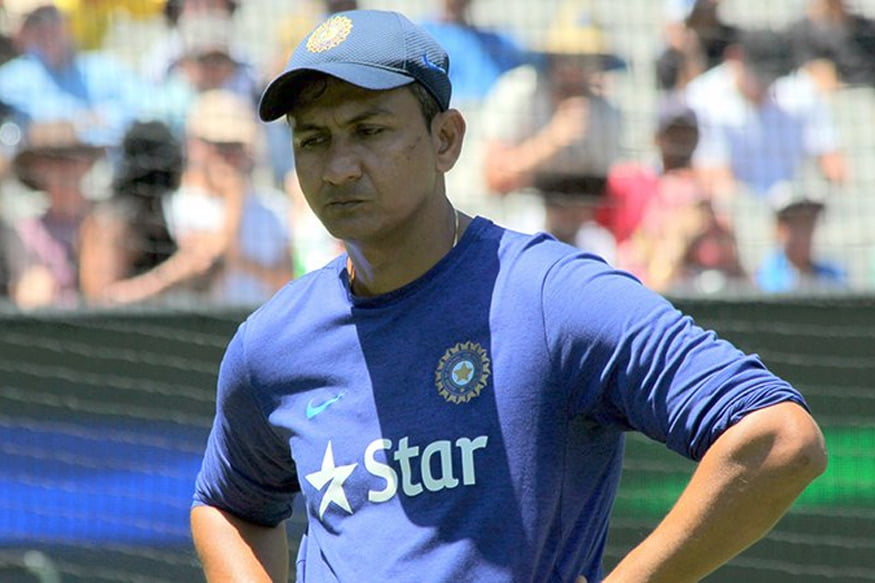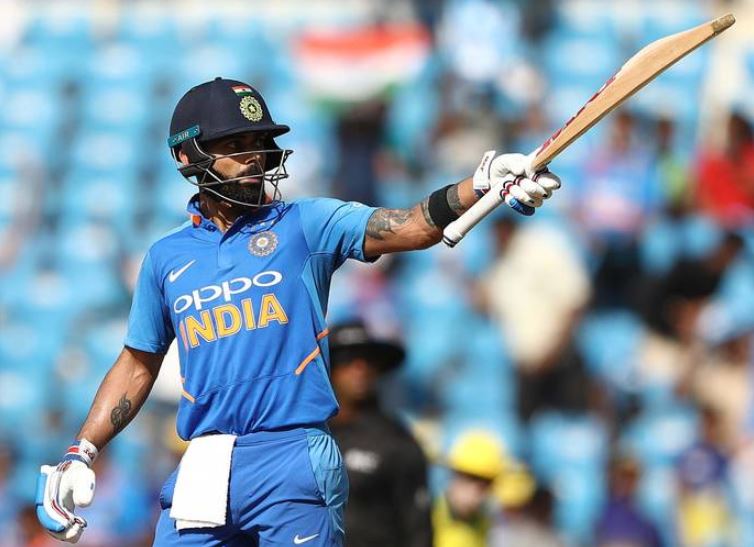ICC Cricket World Cup is around the corner and all set to begin from May 30 in England. All the teams have pulled up their shocks and working on their strength and weaknesses. While other teams are hoping to hit as many sixes and fours as possible in the mega event, India team are not looking for boundaries whereas they are looking on strike rotation and playing risk-free cricket, expressed India’s assistant coach Sanjay Bangar.

“We’ve our own internal parameters as to how to approach ODIs. If we come close to those parameters, we should be fine,” Bangar said to Bangalore Mirror.
“What makes the Indian team unique is that it’s consistently playing risk-free cricket. And that’s because we emphasise on the ones and the twos. As a batting group, we are not obsessed over the number of boundaries we’ve hit. But we discuss strike-rotation a great deal. Which is why we’re able to eschew risks,” he added.
Read here: Simon Katich says fitting Warner & Smith in XI will be a happy headache
However, the players were featured in the recently concluded Indian Premier League and the coach wants them to leave the T20 mode as the 50-over World Cup is about to begin.
“In T20, you’re all the time expecting what the bowler will bowl. You end up planning beforehand looking at field placements… The go-to balls for most bowlers are analysed in detail. Batsmen start expecting such deliveries,” said Bangar.
“In 50 overs where you have more time and are getting 300 deliveries instead of 120, you need to be mindful of not premeditating shots for the major part of the innings,” he further added.
England is currently playing a five-match ODI series with Pakistan where both the teams are continuously scoring more than 350 runs in the series which is playing on England. However, Bangar said things can change pretty quickly so it’s better not to depend on numbers.
“Don’t go by stats. Data serve as mere tool. By all means analyse stats, but don’t make your conclusions based on them. It’s how to react to a situation on a particular day that matters…everything counts from making smart decisions to adapting to situations that are unforeseen. You can’t go with a rigid mindset. Be open. Absorb pressure. Respond to situations, overcome challenges and get the job done. As a team, we’re tilted in that direction instead of being over-reliant on numbers,” he explained.
Also read: Kedar Jadhav declared fit for the upcoming ICC World Cup
Bangar has been associated with the team as batting coach since 2014. He shared about the captain Virat Kohli and his form as well.

“What worked for Virat was he played close to the body. He showed great discipline outside off stump in tough English conditions,” he explained.
“He was playing close to his front pad and very late. That required individual discipline. The thing Virat did differently was he stood outside the crease to reduce the extent of swing. Some of our batsmen tried to use his gameplan but erred in reaching out towards the ball,” he added.
“Whether you stand outside the crease or inside, the key to batting is playing the ball late and close to the body. It could also have been a fallout of going to Test matches straight from T20Is where you’re always expected to get bat on ball. In the longer format, with challenging conditions and a slip cordon around, batsmen have to react to the ball instead of pre-determining their shots,” he expressed.
Also read: It Was a Very Emotional Ton, Says Jason Roy After The Win
Bangar also shared about KL Rahul and his transformation.

“After his debut, he scored prolifically in each part of the world before the drought of runs hit him. We had to assess whether anything in his game had changed drastically. And if anything had indeed changed, the key was to get the player back to the methods he’d been following when he was successful,” he said.
“So we showed KL a lot of videos of the times he had been batting beautifully. He was getting across in his initial movement, which had to be changed a bit. Also, when a player goes through a bad patch, self-doubts tend to creep in. Advice comes in from all quarters. For KL, the challenge was to remain confident of his own methods,” he further added.
